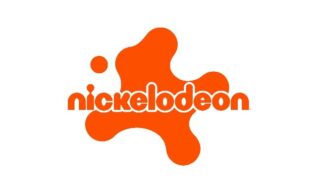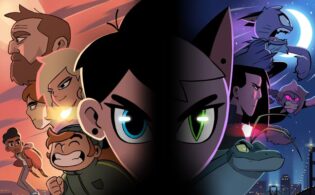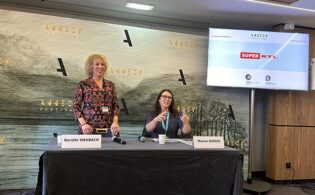 An institution in children’s broadcasting in Europe, Super RTL has never shied away from embracing change to move its business forward. As the marketplace in Germany has evolved over the last few years, Super RTL has shifted with it. In 2014, when The Walt Disney Company (co-owner of Super RTL with RTL Group) opted to launch its own outlet in the country, Super RTL found a raft of new suppliers to make up for the content it was losing. As viewing has moved online, Super RTL has stepped up its digital initiatives. With young ones spending more and more time on YouTube, the channel is exploring what it can do in the short-form web content space. CEO Claude Schmit tells TV Kids about how Super RTL is strengthening its position as a market leader in linear TV while expanding its reach onto all the other platforms kids are seeking out content from today.
An institution in children’s broadcasting in Europe, Super RTL has never shied away from embracing change to move its business forward. As the marketplace in Germany has evolved over the last few years, Super RTL has shifted with it. In 2014, when The Walt Disney Company (co-owner of Super RTL with RTL Group) opted to launch its own outlet in the country, Super RTL found a raft of new suppliers to make up for the content it was losing. As viewing has moved online, Super RTL has stepped up its digital initiatives. With young ones spending more and more time on YouTube, the channel is exploring what it can do in the short-form web content space. CEO Claude Schmit tells TV Kids about how Super RTL is strengthening its position as a market leader in linear TV while expanding its reach onto all the other platforms kids are seeking out content from today.
TV KIDS: How has the last year been for Super RTL in terms of ratings and market share?
SCHMIT: Fantastic! In 2017 we had a share of 21.5 percent; our colleagues from Disney had 9.1 percent and Nickelodeon had 7.8 percent. So we had more than double the share of our [commercial] competition, and more than the competition combined. We cannot complain—it was a really good year.
TV KIDS: What’s driven that dominance for you?
SCHMIT: Our in-house productions, our magazines, are working very well. That’s not surprising, because they distinguish us from the American channels. We do invest heavily in our own shows. We have Super Toy Club, which we first had on air 15 years ago. Boys compete against girls and the winning team gets three minutes to run through the aisles of a toy store collecting whatever they want in a shopping cart. We are producing the second season and there are more seasons to come. We have Woozle Goozle, a science and knowledge magazine that is very funny. The classic Warner Bros. titles are doing very well. The DreamWorks shows are doing fine. Angelo! is doing terrifically. PAW Patrol, a Nickelodeon production, airs on Super RTL and the ratings are going through the roof. It has a huge market share among younger kids. It’s our best-performing preschool format. We are also the merchandising agent on PAW Patrol. That’s a very interesting blueprint. We did a similar deal with Peppa Pig, which was part of German public television’s Die Sendung mit der Maus (The Show with the Mouse). That is working well as well. That might be a blueprint for future cooperation.
TV KIDS: What have been some of the key lessons since the move away from Disney Channel content to sourcing from the open market?
SCHMIT: We learned that there is a lot of stuff available. That is the good part. We also learned, the hard way, that most of that additional volume has been triggered by Netflix, Amazon and company—they are investing heavily. Our expectations are entirely different from those at Netflix. We need shows that are self-contained; we are not for the binge-watchers. Our shows have to have endings. We don’t want kids to be anxious to see what’s going to come next; interested, yes, anxious, no. Netflix wants to generate subscriptions, and they want to do it fast. After a week of being binge-watched, the format can die, as far as they’re concerned. We are in the long-term business. We are in the episode-by-episode business. We also noticed that Netflix is a niche offer, they are not targeting a large audience, so the product under their direction tends to become more niche and less suitable for Super RTL. We are lucky that other people are producing good shows that suit our needs well. We have good products from Warner Bros., NBCUniversal, Sony and also from our Canadian partners, our French partners, from Australia, and we have our own productions. So the mix is what makes the difference.
TV KIDS: We’re always hearing about how kids are growing up faster than before. Has that impacted your programming strategy? Have you needed to age up, or down, any of your shows?
SCHMIT: I don’t think kids have changed so much. They do have other means at their disposal to satisfy their need for highly entertaining shows, be it digital or linear. The offer has expanded dramatically. However, I don’t think children have changed, especially the younger ones. Yes, the older ones have become older faster, that is true, but the younger ones haven’t, or at least to a much lesser extent. From 3 to 6, kids are undergoing such fundamental educational processes. You cannot speed them up. A 12- or 13-year-old is older nowadays than he used to be. But a 3-year-old is still a 3-year-old.
TV KIDS: There have been many headlines recently about immigration in Europe. Are you thinking about any future shifts in your content strategy for these emerging populations in Germany?
SCHMIT: Almost 30 percent of the kids living in Germany have a migrant background. We know they use Super RTL as an integration vehicle; it even sometimes supports them learning German.
TV KIDS: How has the advertising market been?
SCHMIT: I would love to report 20-percent growth. It’s a saturated market. You might have a percentage point up or down, but we are not expecting substantial additional advertising revenues to flow towards linear. We are expecting to see additional advertising money flow to digital. We have nearly doubled our reach in digital over the last years, and have quadrupled our sales. Unfortunately, it is still at a low level compared with what we do on linear, but it is increasing. The increase is a very nice development. However, the absolute numbers are still very small.
TV KIDS: Tell us about those digital initiatives. What have you learned from them so far?
SCHMIT: We are learning on a daily basis. We have refocused Toggo.de, which is our main website for school kids. We have added a video app to that offer and, in January, a games app. We feel that video and games are two different offers, so we had to separate them. Those two apps have been doing tremendously well. The Toggo video app was very successful. We have launched a Toggolino video app. We launched a new product in the preschool business called WoodieHoo. It’s a games app for preschool children that we developed internally. It’s 100-percent owned by Super RTL and has been set up in a way that we can easily transform it into a linear television show if we want to. Because it’s preschool, and there are no speaking characters, we can do it internationally. We are going to launch it in China and the U.K. Furthermore, we are working on a total relaunch of our Toggolino offer by concentrating everything in one app—video, gaming, audio, reading material; everything you need as a parent to offer high-quality educational entertainment to your kids. The Toggolino media hub will launch in November. In addition to that, we will launch a social media offer for kids called PopShake. There is a comparable model in the U.K. named PopJam. We will license the technical platform and build a German version early next year. We’re launching the Super Toy Club app, extending the show digitally, and we’re launching a Woozle Goozle app.
In addition to all those visible actions, we’ve hired a data architect and are now looking into data collection, how to use it and what to learn from it. We are reviewing our IT and social media structure as well as our data management, front-end technical solutions and back-end technical solutions. There’s a lot of behind-the-scenes work happening to make us fit for the digital future.
TV KIDS: You mentioned earlier that Super RTL is the German merchandising agency for PAW Patrol and Peppa Pig. How has your licensing and merchandising business been, and what are your forecasts for it in the years ahead?
SCHMIT: Fifty percent plus. There is much positivity in that business right now. We are, after Disney, number two in the merchandising field in Germany; we used to be number four or five. A powerful impact is coming from PAW Patrol. That is going through the roof.
TV KIDS: And in addition to the third-party brands, are you developing consumer-products extensions to your in-house properties?
SCHMIT: We are launching consumer products for Woozle Goozle and Super Toy Club.
TV KIDS: Tell us about Super RTL’s research initiatives to better understand your audience and how they are engaging with your content.
SCHMIT: We are the number one spender as far as kids research in Germany is concerned. This includes a lot of traditional research, for instance, different tests to better understand the media usage of kids. Now we are looking into the new way of collecting data, where we have a disadvantage. Netflix, Google and Amazon are better at handling their data exploitation. We are not there yet, but we are working on it. That’s why we hired data architects, data managers. We combine the traditional way of collecting data with the new way of collecting data.
TV KIDS: How is your SVOD platform, Kividoo, performing?
SCHMIT: We launched it three years ago. When launching a TV show, it has to be perfect, because there is no second chance. In digital it’s different. We said, We’re launching Kividoo and it’s not perfect, but we’ll launch it and see how it works. It will turn profitable next year, which, in the digital world, is a hell of an achievement. We increased our initial business plan. We even changed it to a better [forecast]. In addition, on Kividoo we now have content from Viacom and many other content producers, not just Super RTL.
TV KIDS: Would you consider producing content specifically for Kividoo?
SCHMIT: Not as a priority. We have a system called near IP. If you create something, you are the IP owner. We succeed in securing precisely the IP rights we need for Germany, particularly because of our merchandising activities. We do not have to pay for the rights for international territories; we pay only for Germany. We have all the rights we need to fill our platforms. Near IP for us is a better solution than IP.
TV KIDS: What are your other significant goals and growth priorities in the 12 to 18 months ahead?
SCHMIT: We have launched our own web content studio as we produce our own content now. We have hired people who are very familiar with content produced for YouTube. They have their own department, their own studio. The aim is to produce original material for [streaming] three days a week, every week. That will be increased to seven days a week over the next six months or one year. We’ll have one brand-new daily web show on air. It’s possible that we’ll include something we have not done before: news for kids.
Furthermore, we’re focused on sourcing the right content for our platforms. We don’t have content planning for TV, linear, apps. We have a content board bundling all content “wishes” from all our platforms. All the properties are run through that department and then dispatched to whoever wants them. All the members discuss what they want, what is needed and then we check our portfolio. If we don’t have it, we buy it or produce it ourselves.
 TVKIDS
TVKIDS





